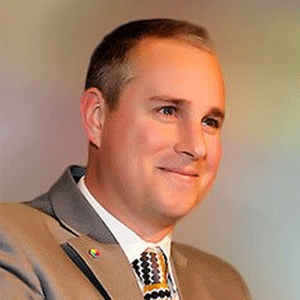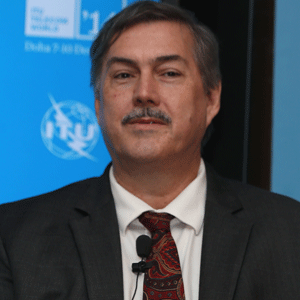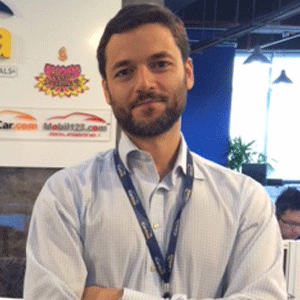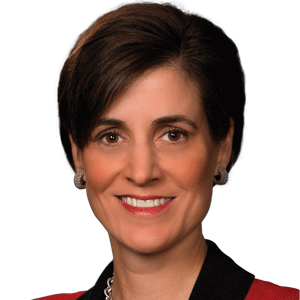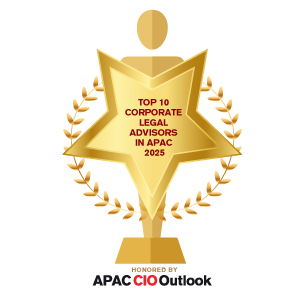THANK YOU FOR SUBSCRIBING

Why Compliance Needs a Seat at the Strategy Table
David Koh, Head, Legal & Compliance (Singapore) and Operational Risk Management Country Lead, Perpetual Limited

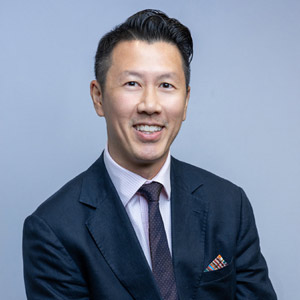
David Koh, Head, Legal & Compliance (Singapore) and Operational Risk Management Country Lead, Perpetual Limited
David Koh is Head of Legal & Compliance (Singapore) and Operational Risk Management Country Lead at Perpetual Limited, where he is responsible for all operational legal matters, as well as the full breadth of compliance activity and regulatory engagement with the Monetary Authority of Singapore. To management, his responsibility is to be the voice of commercial sensibility and reason. To his colleagues, he is the source of clear, practical and easy to understand solutions to get work done. To his team, he is both the guardian and nurturer of their livelihood and aspirations.
His career spans Credit Suisse, Citibank, Bank of Singapore, Swiss Re and Daiwa Capital Markets. He has expertise in banking, asset management and financial regulation across APAC and is known for his advisory strength in product structuring, cross-border regulation and digital asset innovation.
David Koh holds an LLB (Honors) from the National University of Singapore, an LLM from University College London and a Certificate in Business Analytics from Harvard Business School Online.
Recognizing David’s focus on regulatory leadership, this interview explores his approach to blending deep technical expertise with client-centric advisory. It emphasizes his ability to balance compliance, innovation and continuous learning to build stronger partnerships, drive value and foster resilience in a rapidly evolving financial landscape.
At A Glance (To Be Designed As A Panel) • Strengthening Trust through Deep Governance Expertise – True success in legal and compliance is about embedding trust into every decision, backed by strong governance frameworks that enable growth and protection. • Bringing Strategy and Innovation Together –Overseeing the firm’s corporate trust and APAC asset management distribution means more than confining oneself to compliance—it’s about making space for strategic thinking that drives client value and forward momentum.
• Leading Teams with Purpose and Autonomy –Empowering high-performing teams through trust, clear goals and accountability fosters a culture where people excel, collaborate and deliver lasting results without constant oversight.
• Staying Ahead through Hands-On Innovation –Staying agile in finance and compliance isn’t about chasing hype. It’s about hands-on experimentation with digital assets and AI, building resilient teams ready for tomorrow’s challenges.
Regulatory Expertise: Strengthening Advisory and Risk TrustI took the Client Advisor Competency Standards (CACS) 1 and 2 exams to see the world through the eyes of those I advise. These Singapore regulatory qualifications, typically required for front-office professionals, allowed me to understand both their reality and the intention of the regulators.
What I gained went beyond understanding product structures or risk metrics. I saw how complex and high-pressure their work is. Supporting them legally requires context. Knowing how a product works on paper isn’t the same as understanding why it’s structured or sold in real-time, under client and regulatory pressure.
That perspective reshaped how I advise. The legal principles remain, but how I apply them is sharper and more aligned with day-to-day realities. It’s about building trust early and often. My colleagues know I’m there to help them move forward safely and clearly – and I’m willing to take on my share of the risk, subject to certain risk-based conditions, of course.
Taking these exams was a statement—learning doesn’t stop with legal qualifications. We expect the front office to stay sharp; legal should too. Genuine partnership means going beyond expertise and stepping into their world. That’s where collaboration begins.
Leading a compliance team is about creating conditions where people perform under pressure. My approach draws from management of Special Forces teams—small, trusted units with clear roles and decisions made close to the action.
When hiring, I focus on diverse capability and mindset. With that in place, micromanagement becomes counterproductive. Like elite teams, success depends on autonomy. I set goals and boundaries, then step back. That space builds ownership. People lead within their lanes, take initiative and act with confidence.
Autonomy needs support and that comes through open dialogue. A culture that invites challenge and values every voice leads to better decisions and early risk detection. Transparency turns a capable team into a cohesive one.
Decisiveness matters. In fast-moving environments, hesitation carries risk. I encourage bold thinking, but take accountability if things go wrong. Success belongs to the team. That balance builds courage and commitment.
Compliance is often seen as a gatekeeper. I see it as a lever. When we engage early and understand the business, we help shape outcomes that meet regulatory and commercial needs.
The strength of a compliance team doesn’t lie in policies— it lies in trust, clarity and consistency. With those, compliance becomes a strategic asset, not just risk control.
Striking the Perfect Balance: Turning Challenges into OpportunitiesManaging the corporate trust business in Singapore and asset management distribution across APAC has taught me that effectiveness in complexity starts with discipline, not just in execution but also in how I manage time, focus and attention.
This role pulls in many directions. Without structure, there’s no space to think. That’s why I prioritize reflection as much as delivery. It gives me the clarity to spot risks, think strategically and offer advice beyond compliance.
Stepping back is about gaining perspective to make smarter decisions. That mindset helps me anticipate challenges and offer practical, forward-looking support.
Balancing action with reflection shapes how I lead. It helps me think clearly, ask better questions and challenge assumptions early. The result is faster, more thoughtful outcomes aligned with client needs and regulatory expectations.
Over time, I’ve seen innovation in regulated industries not as risk-taking, but as the product of disciplined thinking—making time to reflect, act early and stay focused on what matters most.
Embracing Innovation: Staying Agile in Finance and ComplianceStaying ahead in finance and compliance requires more than reading headlines; it requires hands-on engagement. I stay curious by exploring diverse sources and testing technologies myself. Whether experimenting with a personal “cold wallet” or using generative AI tools like ChatGPT, direct experience sharpens my thinking.
This approach keeps me alert to change. In regulated environments, routine can lead to complacency. Staying active helps me engage with innovation early, not just react to it.
That mindset shapes my leadership, especially in fast-moving areas like digital assets and AI governance. While generative AI draws attention, the real value lies in understanding its controls. In regulated industries, governance is a strategic edge.
More professionals are investing in AI governance training, signaling that risk ownership is gaining traction, even as regulation evolves. For leaders, this is a chance to build fluency early and use governance to enable innovation, not block it.
Adaptability isn’t about chasing trends. It’s about building habits, knowledge and systems that enable early, explicit action. That keeps a team grounded, responsive and ready to deliver in a never-ending landscape.
Strategic Insights for Legal Leaders: Staying Ahead in a Changing LandscapeOne of the most valuable steps in my career was joining working groups on product approvals and business planning. These roles may be behind the scenes, but they offer rare insight into where business ambition meets regulatory expectations.
Being in the room reshaped how I view customer-centricity. It’s easy to focus on either compliance or growth, but real impact comes from understanding their overlap. I’ve seen a design tweak shift regulatory risk or a policy change unintentionally affect customer experience. With that context, you move from gatekeeper to contributor, protecting the firm while supporting the customer.
This exposure helps me anticipate friction early and advocate for solutions that enable innovation without compromising control. Other times, it allows me to be the provocateur for livelier solution-building and encourage other departments to voice their ideas (and concerns). Seeing the whole picture increases your influence—real value comes when you drive progress.
Just as important, these groups build trust. Collaborating with legal, risk, product and sales fosters alignment and positions you as a partner from the start, not just a final check.
As regulation accelerates and customer expectations grow, integrated thinking is no longer optional. Staying effective means thinking beyond silos, staying precise and keeping the customer at the center. That’s the standard I aim to meet—and help others adopt—daily.


